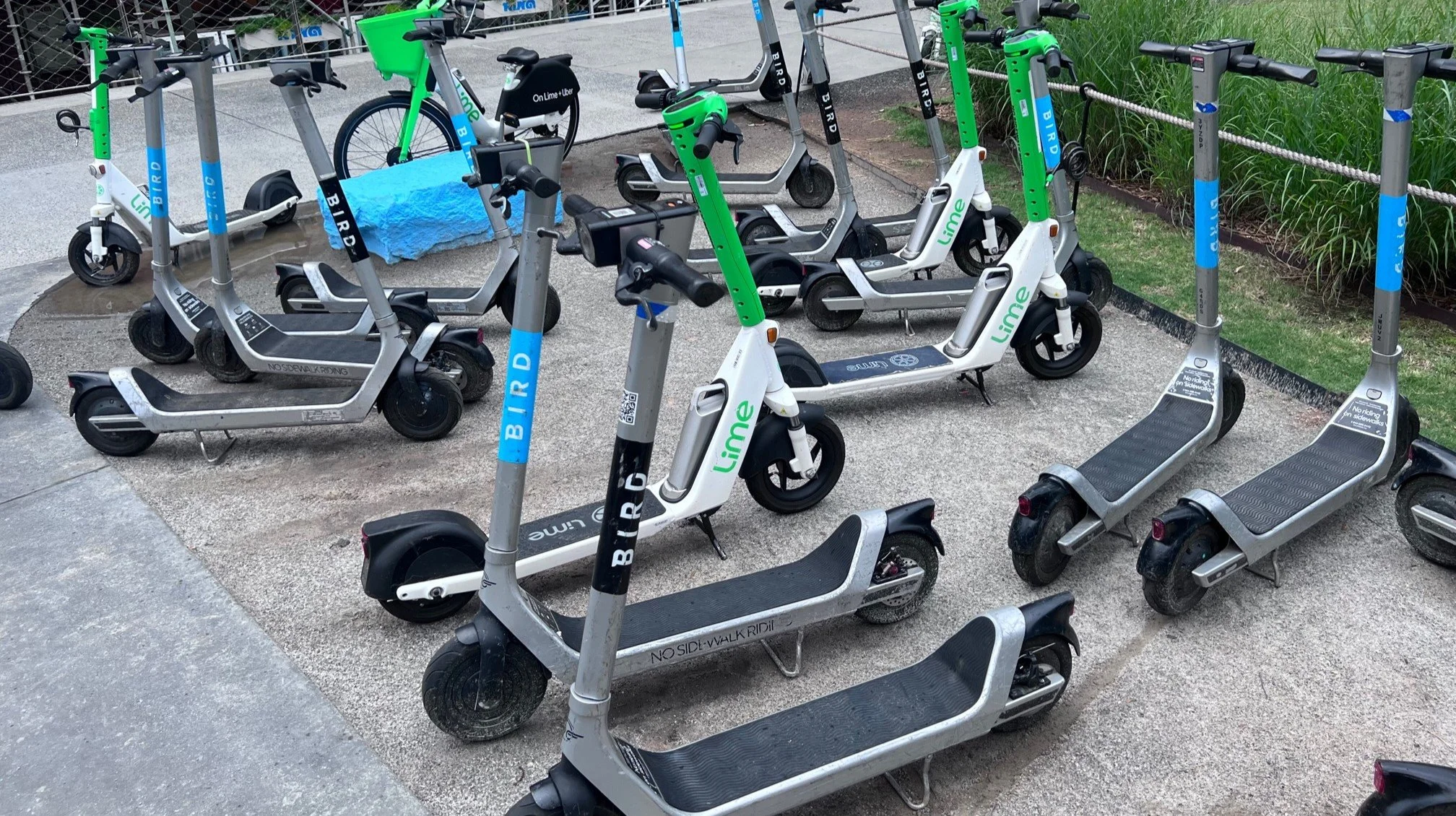Biden budget embraces micromobility
It might be a good time for the City of Atlanta to lean into micromobility.
Micromobility refers to transportation via walking, cycling, scootering and other devices, most of which only carry one person. It’s always been a good idea, because so-called “active transportation” promotes good health, requires little infrastructure and is the least polluting way to get around.
But the electrification of bikes and scooters, and an explosion in ridesharing apps for those sorts of devices, has turned micromobility into a viable option for many more people. Now, it’s finally being taken seriously as a mode of transportation.
As SmartCitiesDrive put it:
A new provision in the administration’s proposed budget would allow FTA grant recipients to directly fund shared micromobility systems to provide communities with transportation options such as bikes and scooters. “By improving access to transit, shared use micromobility can reduce transportation emissions while improving equitable access to transportation,” a DOT budget document states.
In a press release, the U.S. Department of Transportation explained that certain Federal Transit Agency grants would be used to “enhance connectivity to transit stations.” That’s consistent with a vision that transit systems can rely on foot traffic, bicycles and scooters to provide the first or last mile of a lot of transit trips.
Mayor Andre Dickens’ announced last week that he’s working with MARTA to install four new heavy-rail infill stations, some or all of which will be where MARTA trains cross the Beltline. Because the Beltline will almost certainly be used by cyclists and others to get to those infill stations, parts of the Beltline trail could qualify for federal funds under the micromobility provision.
The funding hasn’t become law yet. It’s merely in the fiscal year 2025 budget that the Biden administration proposed last month to Congress. But its inclusion in the president’s budget does indicate that micromobility funding is finally being considered by policy makers. And there’s support for the concept on Capitol Hill.
“Making easy connections to the bus stop or train stop is a critical piece of the transit puzzle,” U.S. Rep. Earl Blumenauer, D-Oregon, said in a rideshare industry article “I am delighted the Biden-Harris Administration shares my commitment to providing robust federal funding for these programs.”
A symposium Thursday afternoon will focus on micromobility, along with other cutting-edge transit technologies. The event, “The Mobility Revolution,” is cosponsored by Better Atlanta Transit, the Georgia Tech School of Architecture and the Speedwell Foundation. It’s part of the architecture school’s “Redesigning Cities” series. The event is free and open to the public. To reserve a spot if attending in person or to find out how to attend virtually, Click here.
— Ken Edelstein


